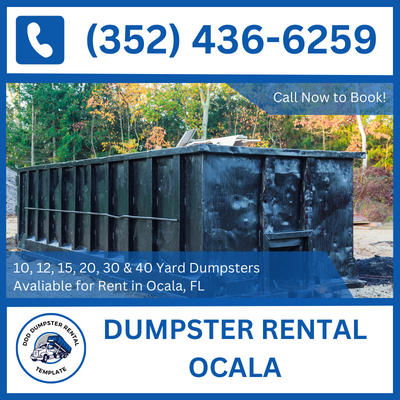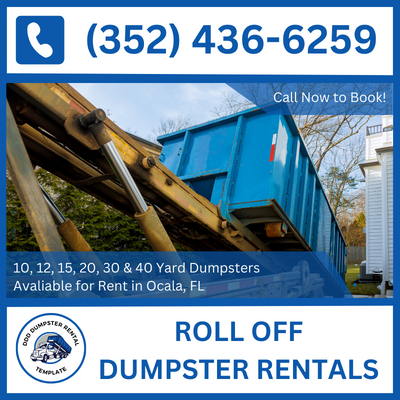Keeping Construction Sites Tidy: A Complete Guide to Efficient Waste Management with Dumpster Rentals
The efficient disposal and removal of waste materials from construction sites is a hugely impactful yet often overlooked aspect of project management. Without proper waste management practices in place, contractors put themselves at risk for reduced productivity, ballooning project costs, safety incidents, and environmental liability. Implementing basic strategies like securing dumpster rentals can yield massive safety, operations, and bottom-line benefits.
This comprehensive guide explores key techniques contractors should employ to promote construction site cleanliness while responsibly managing unwanted debris. Core topics include:
- Implementing cost-effective dumpster rentals
- Crafting and enforcing site-wide waste management plans
- Embracing new technology solutions for advanced monitoring and reduced manual effort
- Complying with local ordinances and environmental regulations
Adhering to these construction site housekeeping best practices confers major advantages:
|
Benefit |
Description |
|
Improved Safety |
Eliminating trip and fall hazards |
|
Greater efficiency |
Less time spent handling debris |
|
Cost reductions |
Lower disposal and transportation fees |
|
Regulatory compliance |
Avoiding citations and legal issues |
By equipping contractors with actionable plans for construction debris removal, this guide aims to promote cleaner and more functional jobsites from both productivity and sustainability standpoints. Let's review why construction site cleanup matters.
Why Follow Construction Site Housekeeping Best Practices?
I get it—no construction worker or project manager relishes time spent picking up scattered debris or hauling overloaded garbage bags. And with deadlines looming, site cleanup can easily slide down the priority list. Believe me though, proper waste management pays massive dividends! Implementing basic construction site housekeeping delivers killer benefits across the board:
Protecting Your Crew with Improved Safety
- When timber offcuts, protruding nails, and jagged scraps litter the ground, they become treacherous trip and fall hazards. No bueno!
- With obstructed vision, your crew also risks bumping into dangerous protrusions or stepping into open trenches.
- By containing and removing waste daily, you clear escape paths and prevent nasty tumbles or injuries. It's about looking out for your people!
Working Smarter with Added Efficiency
- We get it—construction workers want to build, not pick up garbage!
- But think about this: How much time gets wasted hunting for tools buried under debris piles or moving crap out of the way? That's lost productivity right there!
- Proper cleanup duties streamline workflows big time. Everything secured in designated areas = no more scavenger hunts for gear or supplies. Pretty slick, right?
Safety and efficiency are reason enough for staying on top of site hygiene. But properly managing your waste unveils bonus benefits too...
Saving Major Coin through Cost Reductions
- Between equipment rentals, dumpster transportation fees, and disposable costs, debris removal ain't cheap!
- But failing to remove crap carries even steeper fines if environmental agencies catch wind. Yikes!
- By containing waste, you slash rental durations, landfill loads, truck trips...ka-ching!
|
Cost Category |
Estimated Savings |
|
Dumpster Rental Fees |
10-30% |
|
Disposal/Landfill Costs |
15-40% |
|
Transport Fees |
20-60% |
Now we're talking some serious cash!
Shouldering Your Civic Duty
Sure, raking in more profit and keeping your crew safe are nice perks...but embracing sound construction site waste management practices serves the greater good too!
- All of us have to share this big beautiful planet Earth...it's our responsibility to keep her healthy! Properly containing debris prevents contamination or pollution seepage into soil/groundwater.
- Responsible sorting and recycling conserves landfill volume for future generations. Chip in by doing your part! Mother Nature will thank you.
So there you have it—dumpster rentals and consistent cleanup policies check ALL the boxes by delivering safety, financial, operational, and environmental benefits! Let me walk through easy tactics to implement a winning construction site housekeeping game plan…
Making Dumpster Rentals a Reality on Your Sites
Alright, you’re sold on keeping worksites tidy and leveraging dumpster rentals...but how do you make that vision a reality? I'll break it down into simple steps:
Picking the Right Receptacle
- With so many sizes and designs, choosing the best construction dumpster rental can get overwhelming fast. Let me help!
- For demolition waste, grab one of those big honkin' 20+ yard roll-off containers—they guzzle up piles of concrete chunks and wood scraps no prob.
- Doing gut remodels or room add-ons? A 10-15 yard dumpster lets you toss drywall shards and sink leftovers without constant overflow trips.
- For smaller cosmetic remodels, a standard 6-8 yard rear-loader gets the job done on the cheap.
I'll let you in on an industry tip too: Certain outlets rent dumpsters specifically for brick/concrete debris since they require separate disposal. Cha-ching! Those specialized options save major banks on mixing fees.
Mapping the Perfect Spot
Pop quiz: Where's the ideal dumpster rental placement on busy worksites?
If you said smack dab in the middle of traffic lanes or dangerously perched atop a hill, buzzer noise...try again!
✅ Think visibility – Spot it centrally so everyone knows the designated dumping zone!
✅ Think access – Near high-traffic areas but not blocking vital doorways or thoroughfares!
✅ Think safety – Flat terrain and away from hazardous energy sources or flammable materials!
Mapping your construction site load zones in advance streamlines waste transportation and prevents nasty jams.
Configuring Smart Site Waste Management Plans
- Designating dumping hotspots helps, but without formal guidelines in place, debris still accumulates in chaos.
- Protect your progress by crafting a structured site-wide Construction Waste Management Plan:
- Outline specific cleanup responsibilities for subcontractors
- Institute mandatory sorting/recycling policies
- Enforce daily collection timetables
- Implement training protocols and accountability checks
- Display these waste management policies prominently around the worksite and cement that site hygiene into your company culture!
Okay, with savvy dumpster rentals, strategic load zones, and clear waste policies activated—you’re ready to maintain tidy sites long-term! Let’s reinforce that positive change by exploring more cleanup tactics…
Crafting a Killer Construction Waste Management Plan
So you've got your trusty dumpsters, strategic load zones...but how do you enforce site hygiene standards long-term? It's time to level up with a comprehensive waste management plan!
I know, I know—more paperwork and rules sound about as fun as getting cavities filled. But following a structured site cleanup blueprint keeps your crew aligned and cements positive habits. You got this! Here's how to implement an air-tight construction waste management plan in 5 easy stages:
🗒️ Assessing Current Waste Generation
- Before attacking debris buildup, understand what you're dealing with. Conduct a full worksite audit observing:
- What types of materials end up as waste? (wood, drywall, plastic, etc.)
- Which activities produce the most garbage? (demolition, framing, flooring)
- How quickly does debris accumulate?
- Quantify volumes, frequencies, costs, and manpower associated with current disposal efforts.
🔢 Setting Quantitative Diversion Goals
- Armed with baseline construction site waste insights, establish targeted objectives for improvement:
- "Reduce wood scrap waste by 30% this quarter"
- "Achieve 20% greater recycling rates within 6 months”
- Assign metrics like percentage decreases in dumpster hauls or dollars saved in landfill fees.
👷 Defining Duties and Responsibilities
- Now institute clear expectations around waste activities across contractor crews:
- Outline end-of-day cleaning checklists for each trade
- Designate foremen to monitor compliance via safety walkthroughs
- Codify routes, schedules, and procedures for collecting trash
- Make sure every subcontractor understands their cleanup obligations!
📋 Formulating Official Policies
- Take those responsibilities and cement them as non-negotiable site policies:
- Mandate sorting waste into labeled disposal streams
- Implement construction recycling programs for wood, metal, cardboard etc.
- Restrict allowable dumping locales to prevent clandestine pile-ups
- Institute progressive disciplinary measures for repeat offenders
🕵️♂️ Executing Ongoing Inspection Procedures
- With official plans activated, continuously monitor adherence:
- Perform frequent worksite safety walkthroughs
- Document lapses with written citations
- Review analytics on waste generation rates
- Revise policies as needed to improve efficiency
By following this continuous improvement process, you can eliminate 80%+ of debris chaos—guaranteed! Let's build on that progress with more cleanup tips...
More Tricks for Keeping Your Site Shipshape
Okay, you're crushing the dumpster game, you've penned impressive policies...but I've got even more pro construction site cleanup tips to take things to the next level!
1️⃣ Clear Those Walkways
- As we covered earlier, scattered tools, cords, and materials spell danger for messy tumbles. So be vigilant about encroachments into your worksite walkways and corridors!
- Designate crews each shift to police passageways for obstructions
- Mark tripping hazards like extension cords in high-visibility colors
- Never allow stacks of ply boards or drywall to block escape routes
- Maintaining visible, clutter-free paths minimizes liability and keeps your team moving safely.
2️⃣ Store Supplies Smartly
- You procured all those construction materials for building, not tripping over, right? Organize them appropriately:
- Establish designated storage nooks and shelves
- Secure portable equipment like ladders or lifts when idle
- Return tools promptly to lockboxes or sheds after use
- Trust me, investing in storage solutions will pay dividends in time savings and orderliness across your sites!
3️⃣ Take Out the Trash
Construction site dumpsters fill fast. Make sure garbage doesn't pile up elsewhere when you:
- Schedule waste collection vehicles sufficiently
- Transport bulky debris via motorized haulers
- Replace damaged waste receptacles causing leaks/spills
- Monitor dumpster max loads to prevent tipping/overflows
Staying on top of trash trenches helps everything operate smoothly!
There you have it—a few simple precautions make maintaining clean work zones a breeze. Now let's explore how modern tech can also lend a helping hand…
Letting Modern Tech Lend a Helping Hand
Between enforcing policies, inspecting cleanliness, and compiling analytics—construction waste management quickly devours precious time. What if I told you emerging technologies could eliminate those administrative headaches? It's true! Leverage these digital helpers to drive efficiency:
📱 Simplifying Site Monitoring with Software
- Manual debris inspections suck up too many minutes you could spend building. Automated monitoring software now lets you:
- Program routine cleanliness check-ins across sites
- Tag geo-located photo evidence of waste pile-ups
- Generate real-time citation reports for offenders It's like having a robotic assistant constantly patrolling for messiness!
💻 Removing Reporting Drudgery
- Tallying waste manifests and compiling recycling data is a snorefest. Let software shoulder the burden!
- Sensor systems auto-log disposal loads by volume, saving manual tabulation
- Data pipelines produce dynamic analytics dashboards and forecasts with ease
- Custom workflows grant oversight without the manual number-crunching. Think of it like a mega-smart filing cabinet organizing documents for you!
📡 Optimizing Dumpster Use with Sensors
- Overflowing bins create costly cleanup chaos. Sensor networks now detect overloads so you can:
- Dispatch prompt pickups when containers hit capacity
- Redirect deliveries based on dynamic utilization rates
- Reshuffle units just-in-time to prevent hazardous overflows It's like having a 24/7 dumpster monitor on your team!
Bringing even one of these technologies onsite will yield immediate dividends through automation. And pro tip: many waste management companies now offer these modern solutions as value-added services with their roll-off rental packages! Capitalize on technology to work smarter, not harder when overseeing your construction sites.
Got Questions? We’ve Got Answers!
We’ve covered a ton of ground detailing best practices for waste management on construction sites. But I’m sure a few questions are still bouncing around in that head of yours! Let me tackle some frequently asked topics around site hygiene:
💰 How Much Should I Budget for Dumpster Rental Fees?
- Costs fluctuate based on container sizes, rental length, pickup frequency, and regional rates. Ballpark averages:
- 10-yard dumpster: $350–$550 per month
- 20-yard dumpster: $450–$700 per month
- 40-yard dumpster: $700–$1,100 per month
- Temporary short-term rentals for one-off jobs run $100–$200 per week.
- Remember—skimping on waste capacity leads to expensive overflows!
🚚 How Often Should Trash Be Collected?
- For busy sites with 30+ workers, schedule dumpster swap-outs 2-3 times per week.
- With lighter crew sizes or intermittent usage, once weekly is often sufficient.
- Overflowing containers signal it's time to accelerate pickup cadence!
- Pro tip: Many rental companies include sensors to notify you when capacity thresholds are exceeded. Let technology shoulder the monitoring efforts for you!
👷♂️ How Do I Get My Crew On Board with Cleanup Procedures?
- Lead from the front and model diligent waste sorting/disposal behavior yourself before expecting teams to follow suit.
- Complement new site policies and dumpster setups with hands-on training sessions covering protocol.
- Gamify productivity by instituting leaderboards and small rewards tied to proper hygiene habits.
- Gentle reminders and positive reinforcement go farther than penalties in cementing responsible habits!
There you have it—hopefully that dispels some of the question marks around integrating construction site cleanliness programs. Now, let’s drive things home.
Let's Build Efficiently and Sustainably!
Our journey together has shown managing construction debris is crucial for site safety, crew productivity, profitability, and maintaining your company's reputation. While proper waste disposal may not be glamorous, implementing fundamental best practices like securing dumpster rentals and enforcing clear cleanup policies pays game-changing dividends across the board.
We covered critical bases like:
- Implementing cost-effective dumpster rental solutions
- Crafting comprehensive site-wide waste management plans
- Utilizing emerging technologies for advanced monitoring
- Complying with regulations to avoid hazardous contamination
By containing debris, disposing of waste responsibly, and sustaining clean worksites, you drive measurable improvements in injury reduction, operational efficiency, profit, and environmental stewardship.
Now it’s time to take action! Audit your current procedures against the recommendations outlined here. Identify gaps for improvement, cement dumpster rental logistics, and get your crews aligned on cleanliness standards. Construction sites don’t have to be chaotic rubbish heaps! With consistent engagement, you can implement sweeping changes for the better.
Let's work cleanly. Let's work safely. Let's build sustainably!



No comments:
Post a Comment